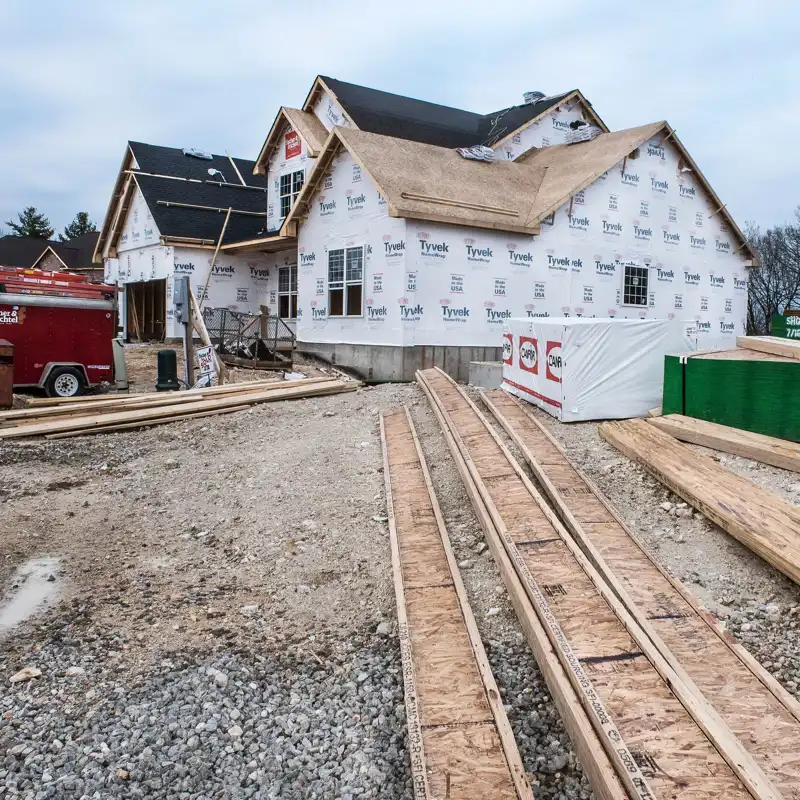Mechanic Lien Bond

A mechanic lien bond is a type of surety bond used in the construction industry to remove a mechanic’s lien from a property’s title.
Key Highlights
- When a contractor, subcontractor, or supplier isn’t paid for their work or materials, they can file a mechanic’s lien, which is a legal claim against the property.
- This lien can prevent the property from being sold or refinanced.
- The bond protects the lien claimant’s right to payment while allowing the property owner to clear the title and continue with construction or transactions involving the property.
How do I purchase a mechanic lien bond?
NFP, the nation's largest and most reliable surety company, is authorized to issue mechanic lien bonds in each of the 50 states. We can provide the best rates for your bond, as well as the fastest issuance, to get your business off and running.
Our short online application makes it easy. Click below to start the application process today.
Mechanic Lien Bond FAQs
A mechanic lien bond is a type of surety bond used in the construction industry to remove a mechanic’s lien from a property’s title. When a contractor, subcontractor, or supplier isn’t paid for their work or materials, they can file a mechanic’s lien, which is a legal claim against the property. This lien can prevent the property from being sold or refinanced.
To resolve this without paying the disputed amount immediately, the property owner or general contractor can obtain a mechanic’s lien bond. This bond replaces the lien on the property with a financial guarantee from a surety company. If the court later determines that the lien was valid, the claimant can be paid from the bond instead of forcing a sale of the property.
The bond protects the lien claimant’s right to payment while allowing the property owner to clear the title and continue with construction or transactions involving the property.
When a property owner purchases a mechanics lien bond, it can free up the property from the lien so it can be used again commercially, or perhaps even sold. However, in purchasing the bond, the owner agrees that he/she will pay all costs associated with labor and materials if a judgment or court case finds in favor of the contractor. In an odd legal sense, the lien is nominally discharged by purchasing the bond but is transferred to the surety bond, which then acts as a guarantee of payment to the contractor.
If the property owner fails to live up to the terms of the mechanics' lien release bond, the contractor can then claim the bond in the amount of the labor and material costs they incurred. The surety company, which sold the bond to the property owner, would then, in all likelihood, pay the amount of the validated claim and pursue the property owner to recover that same amount.
When a discharge of mechanics lien bond is purchased and filed, the lien transfers to the bond itself, and that means it would eventually have to be discharged from the bond before it is completely disposed of. There are several options available to the bond purchaser when it comes to having the lien discharged, the first of which is to allow the lien to expire, which generally happens one year after filing the bond. This is essentially the same thing as allowing the lien to expire if it were still attached to the property. When the lien expires, the surety company involved will usually return any collateral used when purchasing the bond.
However, while you're waiting for the lien to expire, a couple of other things may occur. For instance, the contractor who had a lien put on your property may choose to foreclose on it, in which case you could lose the property entirely as the contractor sells the property to recover any losses. The second possibility is that you could try to legally prove that no payments are still owed to the contractor, in which case the lien would automatically be released. This is generally difficult to prove, given the fact that the contractor bond has already proven that a lien should be imposed.
The value of a discharge of a mechanics lien bond is typically 110% or more of the face value of the lien itself. That means that a lien of $100,000 will require a discharge lien bond of $110,000.
But this is not the amount that a purchaser would have to pay to obtain the discharge bond. The premium (or price) paid for the bond will be some percentage between 1 and 5% of the discharge bond amount. The exact percentage will depend on several factors, most importantly your personal and business credit scores. If these scores are relatively low, that would cause you to be placed in a higher risk pool than purchasers with excellent credit, because you are more likely to default on payments. In such cases, you can probably expect to pay somewhere in the upper range of the percentages referenced, perhaps 10% to 15%.
Assuming a discharge bond with a value of $110,000 and a 10% premium assessed by the surety company, the cost to you of purchasing a mechanics' lien bond would be approximately $1,100.
Why Get Bonded Through NFP?
Fast and Easy
All Types. All States.
Surety Bond Experts
Strong Relationships
Pricing Flexibility
Explore All Surety Bonds
Browse all of our surety bonds below or connect with the expertise and guidance of one of our surety bond specialists.
Featured Bonds
Additional Commercial Surety Bonds
Featured Bonds
Additional Construction Surety Bonds
Featured Bonds
Additional License and Permit Surety Bonds
Explore All Surety Bonds
Browse all of our surety bonds below or connect with the expertise and guidance of one of our surety bond specialists.




